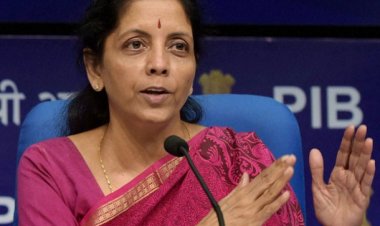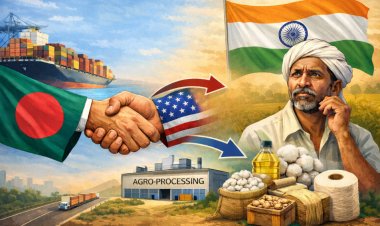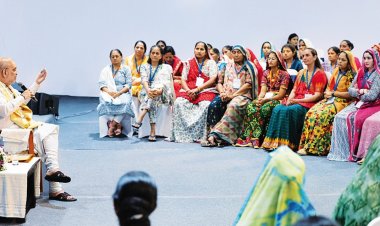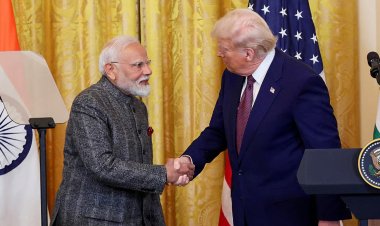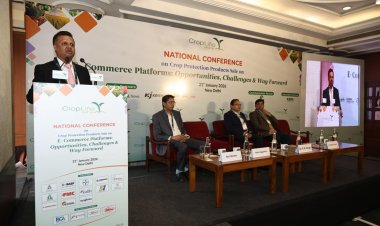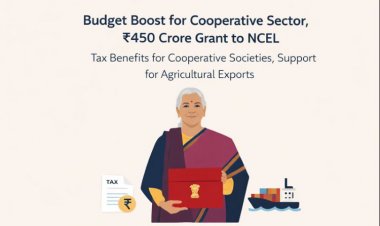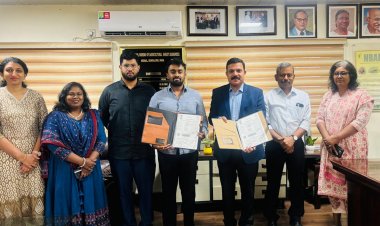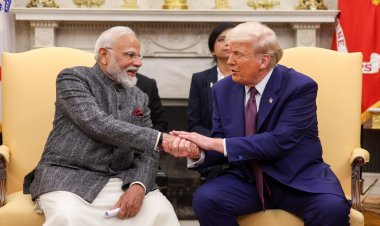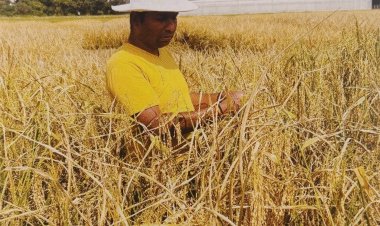Experts urge industry to go beyond viewing coffee only as drink
Sustainability is one of the critical concerns in the global coffee industry and adopting a circular economy and putting the livelihood of the farmer at the core of the business model is the solution – that is the underlying message of the World Coffee Conference (WCC) 2023.
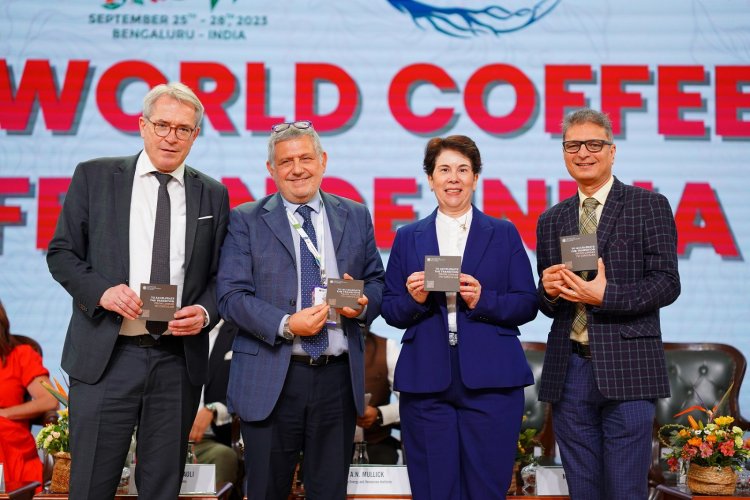
Sustainability is one of the critical concerns in the global coffee industry and adopting a circular economy and putting the livelihood of the farmer at the core of the business model is the solution – that is the underlying message of the World Coffee Conference (WCC) 2023, now underway at Bengaluru.
The conference saw some of the most respected leaders and innovators from the global coffee industry come together to discuss and deliberate on the future of the coffee sector and do a deep dive into the theme of the global conference - Sustainability through Circular Economy and Regenerative Agriculture.
Celebrated economist, entrepreneur and author of the book ‘The Blue Economy’ Prof. Gunter Pauli emphasized on the immediate need to put livelihood of the coffee farmers at the core of the business model. “The industry focusses too much on core business and core competence. No! The livelihood of farmers and ethics should be at the core of the business model” he stressed. One needs to view the ecosystem as a whole he added and look at coffee through a different lens – not only as a drink but as a bean with a lot more potential.
“The coffee husk can be used to farm mushrooms. It's successfully being done in some countries and aids in growing nutritious foods while also creating livelihood for thousands of farmers. Coffee waste can also be used to create functional products like textiles which absorb odour due to the presence of coffee”, explained Pauli tugging onto his jacket which was made with a fabric of which 7% is coffee waste.
Circular Activist Harald Friedl, CEO, Green Leadership agreed and encouraged the industry to “go beyond looking at coffee only as a drink and explore the use of coffee in alternate products”. Friedl reiterated how the shift from linear to circular economy is the only way forward. “While recycling in a step forward there is a need to recycle, repair, return and reuse” said Friedl.
Michelle Burns, Executive Vice President- Global Coffee, Social Impact & Sustainability, Starbucks agreed with Pauli and emphasized on how the voice of the farmer is central to the promise of a sustainable future. “The success of the future of the coffee industry is based on the partnerships we forge with the farming community. A wholistic approach is key to reducing our environmental footprint,” said Burns.
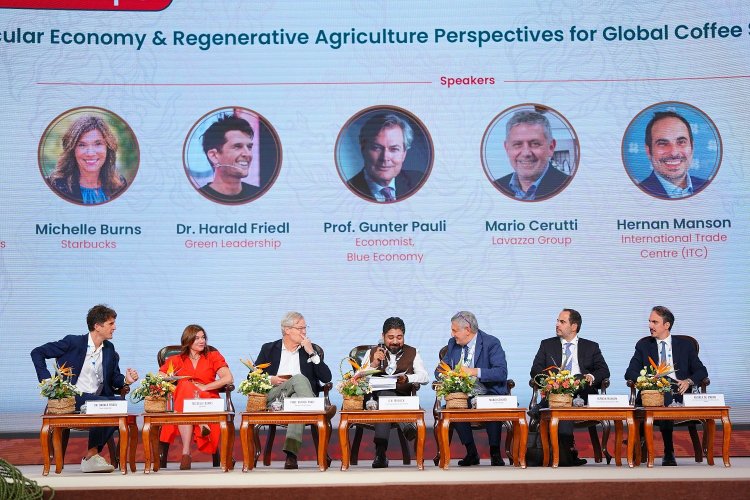
Pauli and Friedl urged the industry to move beyond concept to implementation of action. “We don’t need only decisions. We need decisions which are executed” stressed Pauli. “There is way too much of green washing, pretty pictures and talk. The world is going through a climate crisis. As an industry we need to do more to look at the ecosystem as a whole and find solutions which are truly sustainable”.
The session on ‘Financing Mechanisms and Opportunities for the Coffee Sector’ threw light on the creation of a coffee fund, co-investment opportunities and the need for investment capital for producers whose needs differ from county to country.
There is a growing demand for speciality coffees in recent years. Speaking at the session on ‘Coffee Quality & Speciality Coffees’ Yannis Apostolopoulos, CEO, of US based Speciality Coffee Association (SCA) explains, “Specialty Coffee loved by coffee enthusiasts around the world stands out as a true artisanal experience. It's not just a beverage; it's a journey, a culture, and a commitment to excellence. The climate, altitude, quality of soil, pollinators - all aid in creating distinct flavor profiles. This results in a rich tapestry of flavors that can range from fruity and floral to nutty and chocolatey, catering to different cultures.”
DM Purnesh, President, Specialty Coffee Association of India agrees. “Specialty coffee fosters a sense of community. We are trying to build a market in India for speciality coffees and have made good headway. The future of India as a coffee leader looks very promising.”
The workshop 'Everything Brewing Cold and Hot' covered a range of coffee brewing techniques, including tasting locally made cold brews and offering instruction on pressurized and manual extraction methods. Meanwhile the workshop Rise of Alternative Milk highlighted the growing trend of using plant-based milk in coffees among the Indian population especially among individuals in their 20s and 30s who are adopting a vegan diet.
An MoU was signed earlier in the day between Mario Cerutti, Chief Institutional Relations & Sustainability Officer at Lavazza Group (Italy) and Andrea De Marco, Project Manager, United Nations Industrial Development Organization (UNIDO).
Various challenges impact sustainability in the coffee sector such as climate change, increasing cost of production, and volatile prices. The goal of WCC 2023 is to address these challenges and exchange ideas and knowledge regarding the circular economy and regenerative agricultural practices. The 5th World Coffee Conference (WCC) 2023 is organized by the International Coffee Organization (ICO) in collaboration with the Coffee Board of India; Ministry of Commerce and Industry, Government of India; Government of Karnataka, and the Coffee Industry.
The 4-day international event features Conferences, Skill Building Workshops, a Growers Conclave, CEOs & Global Leaders Forums, Startup Conclave, Competitions & Awards, and an Exhibition showcasing cutting-edge coffee products and services. The global event has witnessed participants from over 80 countries, including 2400 Delegates, 128 Speakers, 208 Exhibitors, 10,000 visitors, and 300 B2B meetings.



 Join the RuralVoice whatsapp group
Join the RuralVoice whatsapp group



















